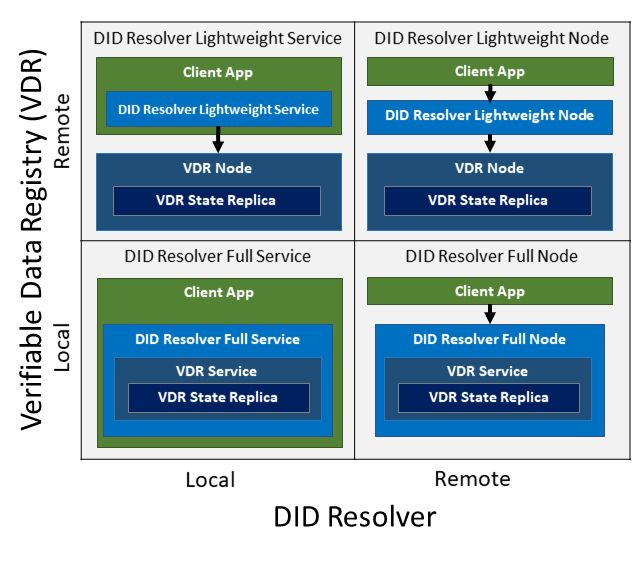I agree this is a critical topic, that's why @dmitrizagidulin and I added a section called "DID Resolution Architectures" at the beginning of the DID Resolution spec: https://w3c-ccg.github.io/did-resolution/#architectures
There's not much content yet, but this section should discuss local resolvers vs. remote resolvers and their trade-offs and trust implications.
When relying on remote services during DID Resolution, I guess there are multiple potential mitigation strategies against various threats:
- run your own trusted remote DID Resolver and talk to it over a secure connection.
- contact multiple remote DID Resolvers and compare results (good idea, I haven't thought of this before).
- some DID method such as
sovmay contain state proofs from the ledger, this can allow you to trust the result to some extent, even if it was passed through an intermediary untrusted remote DID Resolver. - a remote DID Resolver may add a signature or other proof to a DID document, this way you could mitigate against MITM attacks between your client and the remote DID Resolver.
Some of these ideas are already mentioned in the DID Resolution spec draft, but we need to flesh them out.
As a side note, @creatornader and I also added a yellow warning symbol to the Universal Resolver a few days ago, to make sure people treat it as an untrusted third party and run their own local resolver software whenever possible.

In reading through some of the discussion about the DID resolver spec, I feel like some of the feature requests (for instance #27) are more for what I might call a "remote" did-resolver, which though can be useful as a secondary check on your own did-resolution results, but I personally would not directly trust.
In my scenarios I would only feel confident about my own 'local" did-resolver, i.e. installed on my device and not queried over internet. This is analogous to having my own bitcoin-core server (and Blockstream satellite connection) making me more financially self-sovereign.
And like bitcoin, when using a mobile device I might point to my own trusted server and secure connection to it (some bitcoin wallets support that now). I might also trust DID resolver a little bit when using a constrained devices (mobile or IOT), by using Tor/i2P or some other privacy service and then querying multiple DID-Resolvers to compare the results.
Thus in the use cases document for DID-Resolvers I'd like to see some discussion about the differences between local resolution vs. remote resolution.